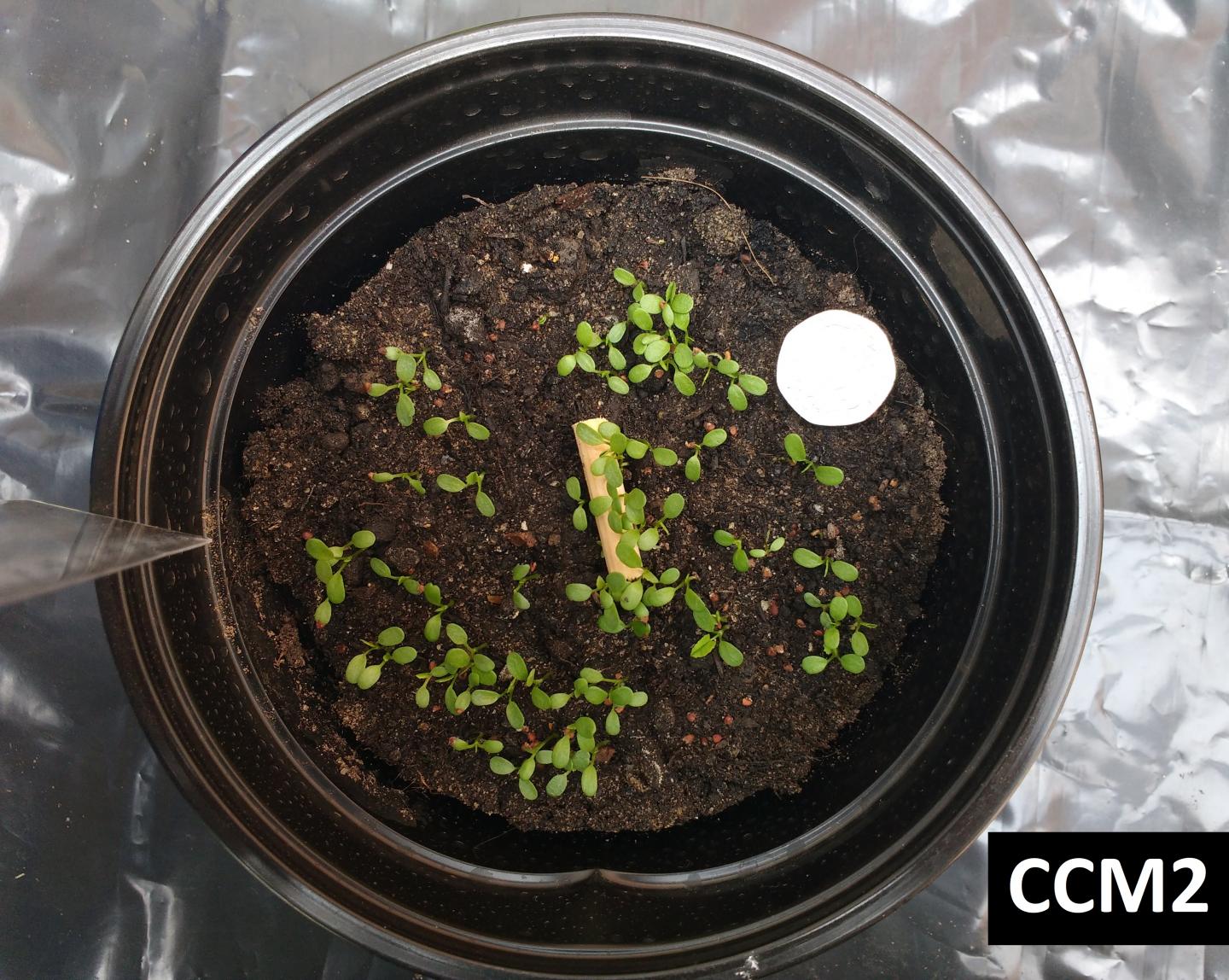New research is first to show damage caused to plants

Credit: Jaime Da Silva Carvalho, Anglia Ruskin University (ARU)
New research has discovered that cigarette butts – the most common form of litter on the planet – significantly reduce plant growth.
Led by academics from Anglia Ruskin University (ARU) and published in the journal Ecotoxicology and Environmental Safety, the study is the first to show the damage that cigarette butts can cause to plants.
The researchers found that the presence of cigarette butts in the soil reduces the germination success and shoot length (the length of the stem) of clover by 27% and 28% respectively, while root biomass (root weight) reduced by 57%. For grass, germination success reduced by 10% and shoot length by 13%.
Most cigarette butts contain a filter made of cellulose acetate fibre, a type of a bioplastic. Filters from unsmoked cigarettes had almost the same effect on plant growth as used filters, indicating that the damage to plants is caused by the filter itself, even without the additional toxins released from the burning of the tobacco. Control experiments contained pieces of wood of identical shape and size as the cigarette butts.
It is estimated that around 4.5 trillion cigarette butts are littered every year, making them the most pervasive form of plastic pollution on the planet. As part of this study, the academics sampled locations around the city of Cambridge and found areas with as many as 128 discarded cigarette butts per square metre.
Lead author Dr Dannielle Green, Senior Lecturer in Biology at Anglia Ruskin University (ARU), said: “Despite being a common sight littering streets and parks worldwide, our study is the first to show the impact of cigarette butts on plants. We found they had a detrimental effect on the germination success and shoot length of both grass and clover, and reduced the root weight of clover by over half.
“Ryegrass and white clover, the two species we tested, are important forage crops for livestock as well as being commonly found in urban green spaces. These plants support a wealth of biodiversity, even in city parks, and white clover is ecologically important for pollinators and nitrogen fixation.
“Many smokers think cigarette butts quickly biodegrade and therefore don’t really consider them as litter. In reality, the filter is made out of a type of bioplastic that can take years, if not decades, to break down.
“In some parks, particularly surrounding benches and bins, we found over 100 cigarette butts per square metre. Dropping cigarette butts seems to be a socially acceptable form of littering and we need to raise awareness that the filters do not disappear and instead can cause serious damage to the environment.”
Co-author Dr Bas Boots, Lecturer in Biology at Anglia Ruskin University (ARU), added: “Although further work is needed, we believe it is the chemical composition of the filter that is causing the damage to plants. Most are made from cellulose acetate fibres, and added chemicals which make the plastic more flexible, called plasticisers, may also be leaching out and adversely affecting the early stages of plant development.”
###
Media Contact
Jon Green
[email protected]
Original Source
https:/
Related Journal Article
http://dx.




